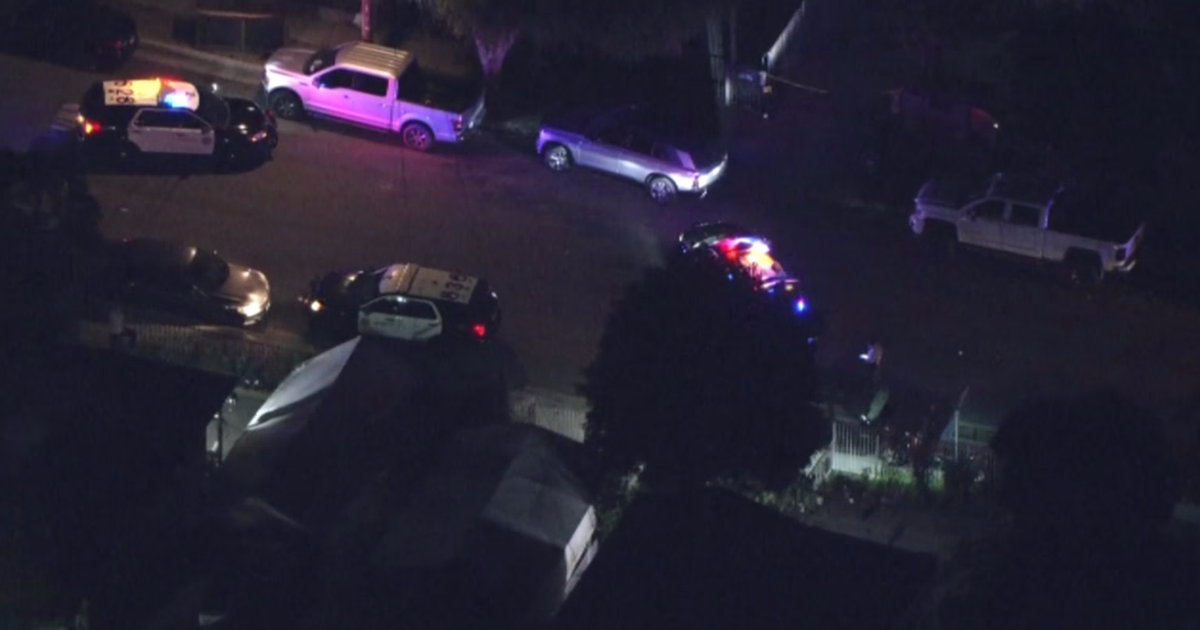Report Raises Concern About Glock Handguns
MIAMI (CBS4) - A never before released report by the Palm Beach Sheriff's Office raises questions about the reliability of the Glock semi-automatic handgun used by its deputies.
Obtained by CBS4 News, the confidential sheriff's department document outlines a series of incidents in which problems with the Glock firing pin caused the gun to malfunction and not fire.
Issued by the department's armorer, or gun expert, the March 13 report is titled simply: Firing Pin Issue. In each case where there was a misfire, the gun was taken apart and the firing pin was found to be cracked or chipped.
The report includes photos of the failed firing pins.
The problems were found primarily in the Glock 40 caliber, but also showed up in the 9 mm. So far all of the incidents occurred during training exercises. There have been no reports of the firing pin failing in the field.
A spokeswoman for the Palm Beach Sheriff's Department confirmed the agency was working with both Glock officials and representatives of its ammunition supplier to address the problem.
Glock officials refused repeated requests from CBS4 News for comment.
Glock's relationship to law enforcement is one of the company's most prized possessions. Today no gun is more identifiable with law enforcement than the Glock. By the company's own estimate, 65 percent of all police officers in the United States carry a Glock handgun.
The company's website showcases videos touting this close bond with police.
Approximately 7,500 law enforcement agencies use the Glock, including the Federal Bureau of Investigation, the Drug Enforcement Agency, and the New York Police Department.
Locally, Glocks are used by the Broward Sheriff's Office and the Miami Dade Police Department, as well as police departments in Fort Lauderdale, Hialeah, Miami, and Coral Gables.
CBS4 News found that many of those South Florida departments were aware of the concerns being raised by the Palm Beach Sheriff's Office.
The Miami Dade Police Department even went so far as to produce a five minute video warning officers about the possible problem.
CBS4 News was provided a copy of the video, which opens with ominous music and a warning about the firing pins and instructs the officers how to inspect their firing pins for signs of a problem.
A Miami Dade Police spokesman told CBS4 News: "We have randomly inspected numerous Glock 17s (9mm) and have seen no issues to date. However, we will continue to inspect throughout the year and replace any firing pin with an issue."
The Miami Police Department was having every firing pin inspected. The Coral Gables Police Department took the preemptive step of asking Glock to replace all of the firing pins in their guns. Glock immediately sent Coral Gables a box of new firing pins.
CBS4 News has learned that representatives from Glock's headquarters in Georgia flew in last month to meet with Palm Beach Sheriff's officials. Sources tell CBS4 News that Glock is focusing the blame on the type of ammo being used by the Sheriff's
A spokesman for Speer Ammunition, the company that provides ammunition to the PBSO, told CBS4 News:
"We are committed to providing our customers with the best ammunition available to meet their needs. We have been working directly and swiftly with the Palm Beach Sheriff's Department and their firearms manufacturer to determine a solution for their concerns about premature firing pin erosion. We are confident that we've jointly addressed their concern."
Asked to elaborate on how the PBSO's "concern" was addressed, the company declined to say.
CBS4 News showed the Palm Beach report to local gunsmiths and armorers, including Robert Hasmi, president of Absolute Tactical Solutions in Miami Lakes and a police officer in South Florida for more than 20 years.
"Remember these are all working metal parts rubbing against each other constantly, that's how a gun works," said Hasmi. "The slide rubs against the frame, the barrel rubs against the slide when it, when you form its actions. It's metal rubbing against metal."
Hasmi said the possible culprit is the type of metal Glock uses in its firing pin.
"If the metal is too soft that the manufacturer uses, that could also be an issue," he said.
Glock refuses to say what type of metal they use - arguing it's a trade secret.
CBS4 News spoke to other gunsmiths and armorer who agreed the quality of the metal used in the firing pin could be the key to understanding the problem. But they declined to make their concerns public for fear of alienating the gun giant.
Hasmi said after CBS4 News first sent him the report, he took apart his own Glock weapon - the one he carries when he is on duty. He said he found unusual chips on the head of his firing pin
Asked if it concerned him, he replied: "Yes it did. I wasn't aware of this issue that's going on [until I read the report]. I mean I don't put an excessive amount of rounds through my gun. I fire maybe five to six hundred rounds a year out of it."
Hasmi said while his gun has never failed, he wasn't going to take a chance and planned on replacing the firing pin immediately.
This is not the first time questions have been raised about Glock firing pins and so-called "light strikes" – a problem where the firing pin fails to properly strike a bullet's primer.
In 2005, the Los Angeles Police Department took the unusual step of temporarily ordering its officers to stop using the Glock .45 caliber over the same issue.
Retired cop Wally Philbrick is the owner of the 911 Store - a gun store and firing range in Hollywood.
Although he is not authorized to speak on behalf of Glock, Philbrick is a certified Glock armorer. He has nothing but praise for the firearm.
"I carried Glock for 30 years in SWAT, it's a great gun," he said. "It functions, it's light weight, its inexpensive, it works dirty, it works clean, it works under water, it's a fine firearm."
He said he suspected the problem could be with the ammunition. He explained that some rounds are hotter - packed with more powder - than others which could damage the pins.
If the police are their number one consumer, and the type of ammo police use was the issue, then why shouldn't Glock simply design and build a firing pin that can withstand the type ammo officers use?
"Well Glock's been in business a long, long time," he said. "And the issue as far as I know is with one department only and it's not nationwide and it's not worldwide."







